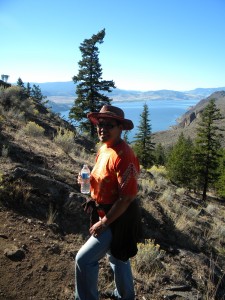Thanks for your feedback and the alert to fill the form. I had filled some other form and thought I was already enrolled.
I had the opportunity to participate in a conference, in Portugal, a few years ago, where Prof. Helen Barrett was a keynote speaker on the topic of Portfolios. At the same conference another theme on PLE was addressed by Graham Attwell – <a href=”http://www.pontydysgu.org/” rel=”nofollow”>http://www.pontydysgu.org/</a>
My experience with online courses is not a long one, since I’m not a teacher. I’m a civil servant at the Ministry who has been involved in ICT programs for schools since 1995 and, at present, coordinates and supports a small community a teachers (circa 55) around the country who have a specific mission of assessing SEN students’ needs for technologies (namely assistive technologies) for learning. This network is supported by a Moodle platform (run by me at the Ministry) which helped to constitute a community of practice, consolidating since 2007. The online training that has been organized is run on a peer learning basis, with the collaborating of some of them as facilitators as well. My concerns are to be clear from the start what to expect, so there are no misunderstandings and people don’t feel frustrated. I usually provide a guideline of the course (detailed one) at the moment of ´sign-up’ and the introductory topic/module is to read it and create/structure an e-portfolio. If people already have a virtual space and wish to use it, they only have to structure a specific area for the course. Regarding newcomers,those that are not so proficient with web tools may find it demanding and time consuming but it’s an important step, to gain autonomy. I also think that people get more enthusiastic when they gain these skills, and produce something that can be shared with others. Then, it’s a matter of practice and the routine leads to exploring other tools that may be useful for their practice. I think that the e-portfolio requirement turns to be appropriated by participants and it’s an alternative way to organize one’s work and a memory that one revisits whenever necessary.
I think it is useful to structure and organize oneself and give some meaning to one’s learning. Many online courses don’t remain open (as you know) and it’s safer for each one to keep and manage one’s work on one’s own space.
We’ve run a MOOC on Inclusion and Technology in 2014 – <a href=”http://inctec2014.blogspot.pt/” target=”_blank” rel=”nofollow”>http://inctec2014.blogspot.pt/</a> – which was totally built on open tools (Blogger, Google tools) and for certification purposes (which remains important for many teachers, though not for me), the condition was to organize an e-portfolio with certain requirements. We’ve gathered all e-portfolios in Blendspace and collected the certified one’s in a Symbaloo (ex: <a href=”http://edu.symbaloo.com/mix/moocinctece-portefolios” target=”_blank” rel=”nofollow”>http://edu.symbaloo.com/mix/moocinctece-portefolios</a>)



